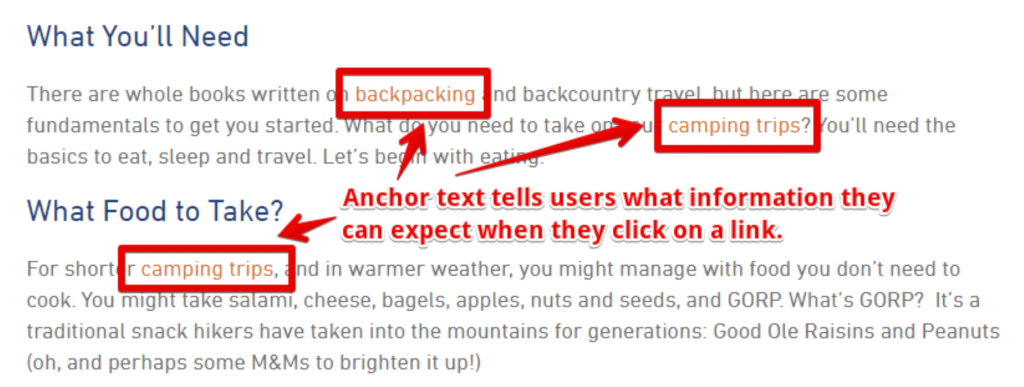Hi, Dave Fox here from Starscape SEO. Backlinks are one of the foundational elements of SEO, playing a crucial role in how search engines like Google rank websites.
But what exactly are backlinks, and why are they so important?
What Are Backlinks?
A backlink, also known as an “inbound link,” is a link from one website to another.

Think of it as a vote of confidence; when a reputable site links to your content, it signals to search engines that your site is credible and valuable.
The more quality backlinks you have, the more authority your site is likely to gain in the eyes of search engines, which can lead to higher rankings in search results.
How to Get Backlinks the Right Way
Earning backlinks isn’t just about quantity—it’s about quality. Here are some legitimate, “white hat” strategies for acquiring them:
Create High-Quality Content
The most effective way to attract backlinks is by creating valuable, shareable content. This can include blog posts, infographics, research studies, or any type of content that offers unique insights or useful information.
Guest Blogging
Writing articles for reputable websites in your industry can earn you a backlink in the author bio or within the content itself. Ensure that the sites you contribute to are relevant to your niche and have a good domain authority (DA).
Build Relationships
Networking with other bloggers, influencers, and businesses in your industry can naturally lead to backlink opportunities. Engaging in forums, social media, and industry events can help foster these relationships.
Resource Pages
Many websites have resource pages that link to helpful content. Reach out to these sites and suggest your content as a valuable addition to their list.
What Google Dislikes: Black Hat Practices

While earning backlinks can boost your SEO, acquiring them the wrong way can have the opposite effect.
Google penalizes websites that engage in “black hat” SEO practices, which include:
Link Trading
Exchanging links with other websites just for the sake of gaining backlinks can be seen as manipulative by Google.
Buying Links
Paying for links to artificially boost your backlink profile is against Google’s guidelines and can result in penalties.
Link Farms
These are networks of websites created solely for the purpose of linking to each other, which can quickly lead to a drop in your rankings.
Quality vs. Quantity
When it comes to backlinks, quality trumps quantity every time.

A handful of backlinks from high-authority websites (those with a high domain authority) can be far more valuable than dozens of links from low-quality sites.
Additionally, relevance matters—backlinks from websites related to your industry carry more weight than those from unrelated sites.
Anchor Text and Its Importance
Anchor text—the clickable text in a hyperlink—also plays a role in the effectiveness of your backlinks.

Ideally, your anchor text should be relevant to the content on the page you’re linking to and should include keywords you want to rank for.
However, over-optimizing anchor text (e.g., stuffing it with keywords) can be seen as manipulative, so it’s essential to keep it natural.
Dofollow vs. Nofollow Links
Not all backlinks are created equal. Dofollow links pass on SEO value (also known as “link juice”) from one site to another, directly influencing search rankings.
Nofollow links, on the other hand, do not pass on this value, but they can still drive traffic and increase brand visibility.

A healthy backlink profile typically includes a mix of both dofollow and nofollow links.
How Many Backlinks Do You Need?
There’s no magic number of backlinks needed to rank well in search engines.

The effectiveness of backlinks depends on factors such as the competitiveness of your industry, the quality of the sites linking to you, and the relevance of the content.
It’s about building a strong, diverse backlink profile over time rather than focusing on a specific quantity.
The Role of Backlink Analysis Teams
In larger businesses, entire teams are dedicated to analyzing and procuring backlinks through ethical, “white hat” methods.
These teams focus on building relationships, creating valuable content, and strategically earning backlinks that align with Google’s guidelines.
This ongoing effort is crucial for maintaining and improving search engine rankings.
How To Check On Your Own Backlinks
There are several ways to check how many backlinks your website has:
Google Search Console
This free tool from Google provides information about your website’s performance in search results, including backlinks.
Go to https://search.google.com/search-console and log in with your Google account.
Select your website from the list.
Navigate to the “Links” section and click on “External links.”
Under “Top linking sites,” you’ll see a list of websites that link to your site, along with the number of links from each.
Backlink Checker Tools
There are many online tools that can help you check your website’s backlinks. Some popular options include:
Ahrefs: Offers a free backlink checker that provides detailed information about your backlinks, including their quality and source.
Semrush: Provides a comprehensive suite of SEO tools, including a backlink checker.
Moz: Offers a free backlink checker that provides basic information about your backlinks.
Third-Party SEO Tools
Many SEO tools offer backlink analysis as part of their suite of features. Some popular options include:
Majestic SEO: Provides a detailed analysis of your website’s backlink profile.
BuzzSumo: Offers a backlink checker and other SEO tools.
Manual Search
While this is a more time-consuming method, you can manually search for backlinks to your website using search engines like Google.
Simply search for your website’s domain name and look for pages that link to it.
By using these methods, you can get a good understanding of your website’s backlink profile and identify opportunities for improvement.
Conclusion
Backlinks remain a vital component of SEO, but they must be earned and managed carefully.
Focusing on quality, relevance, and ethical practices will help you build a strong backlink profile that supports long-term SEO success.
As search engines continue to evolve, so too will the strategies for acquiring and managing backlinks, making it essential for businesses to stay informed and proactive in their approach.

Call or Text Starscape SEO: (519) 208-8680

